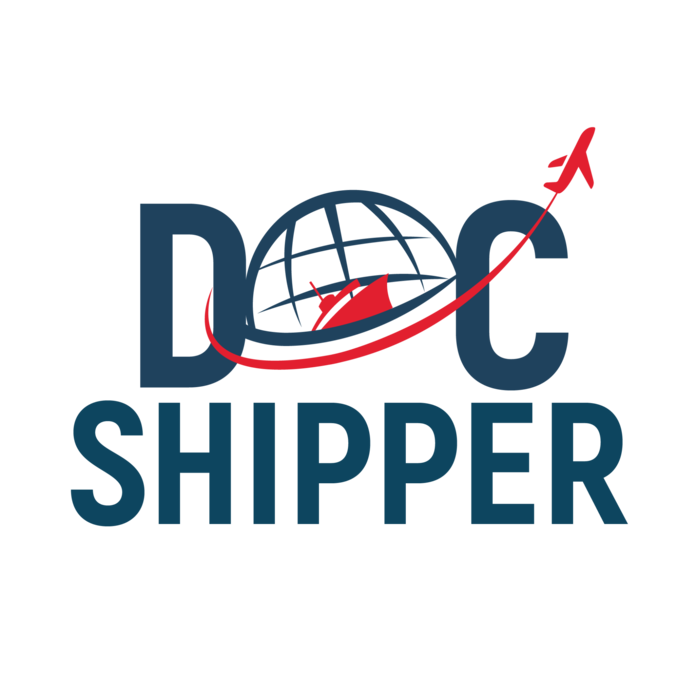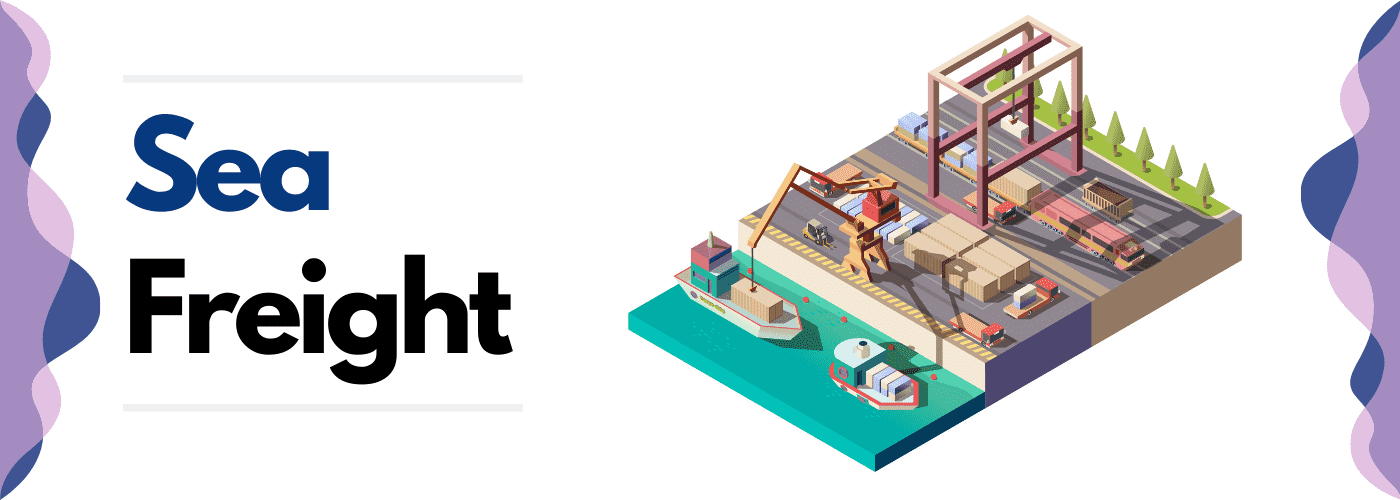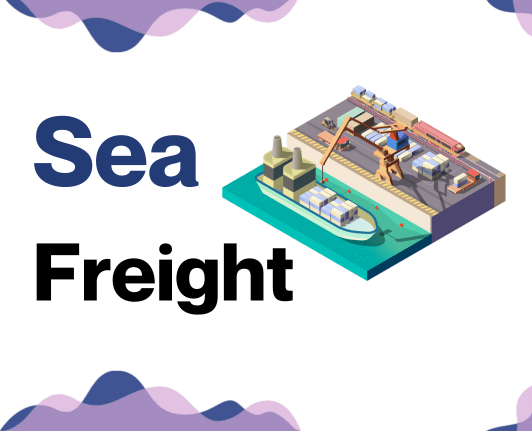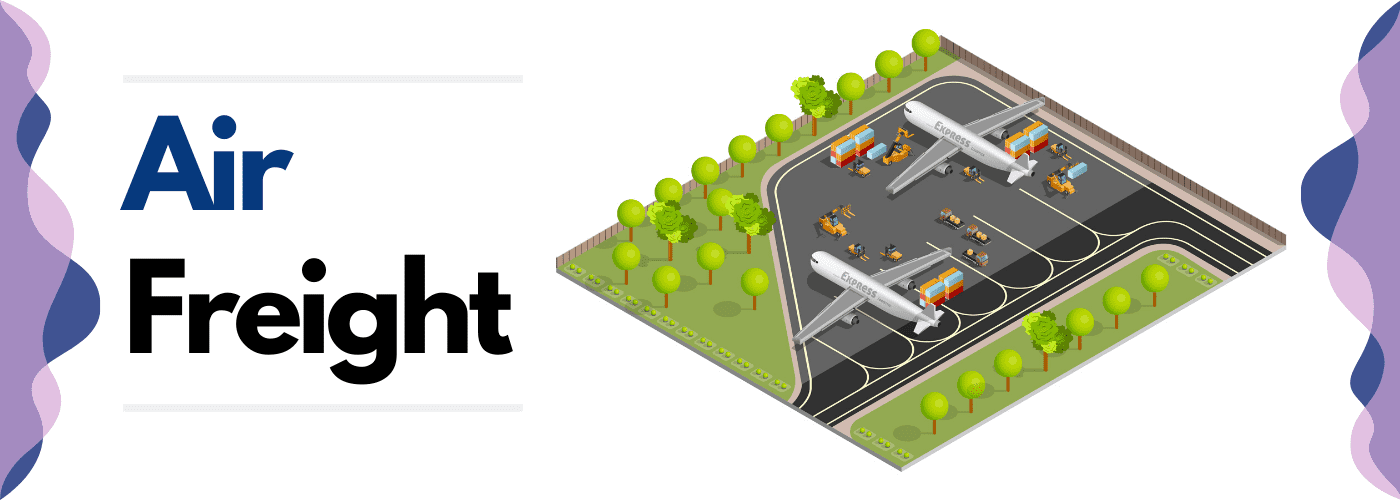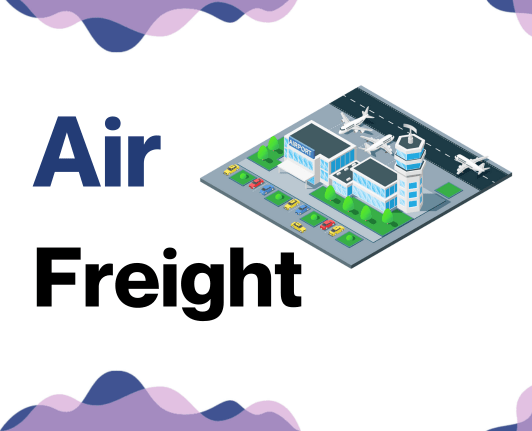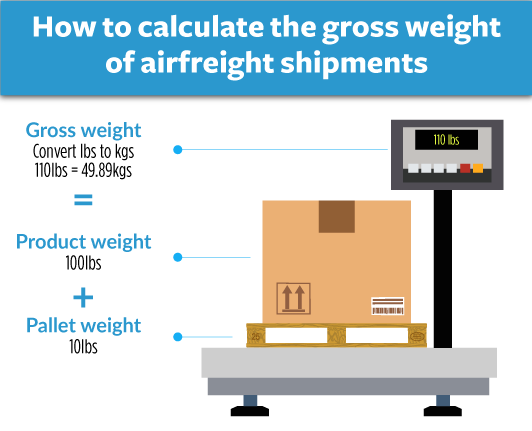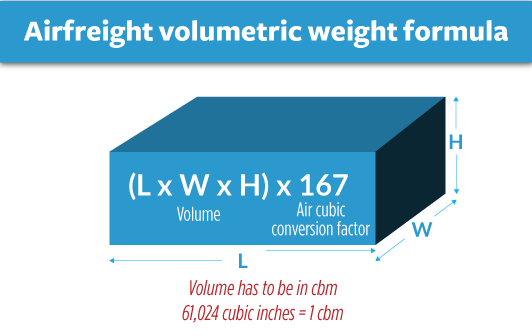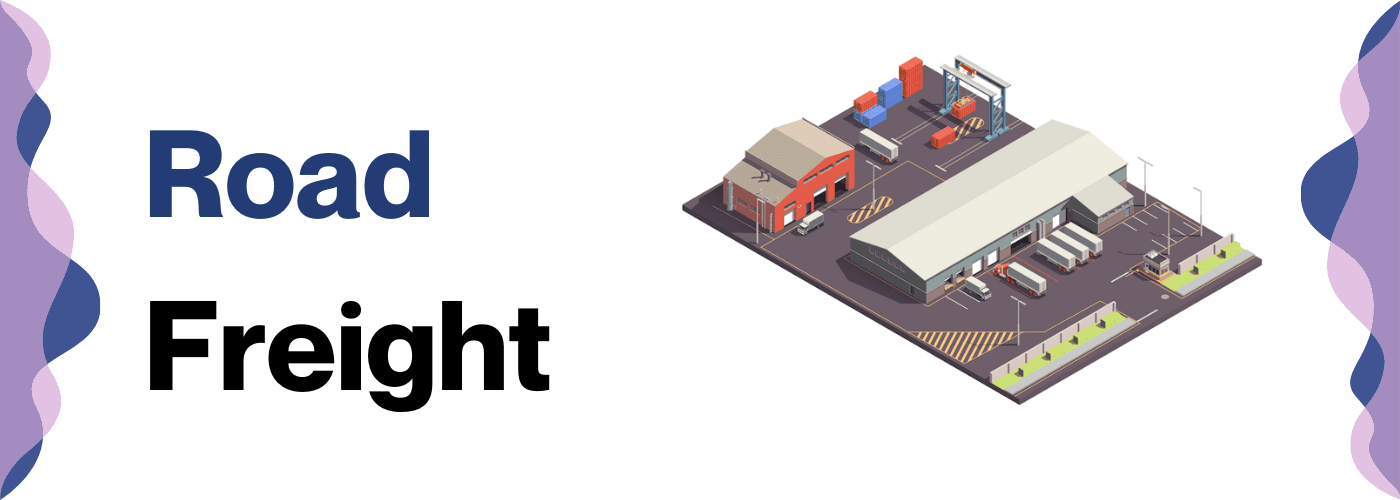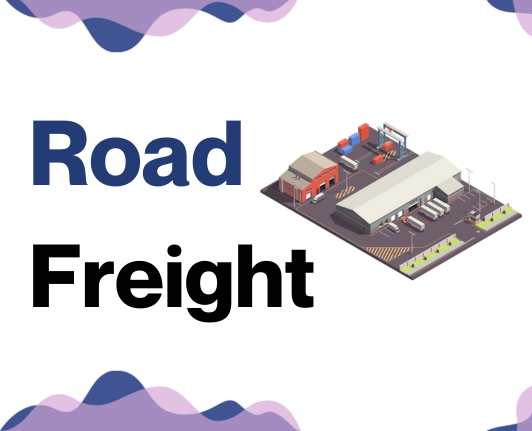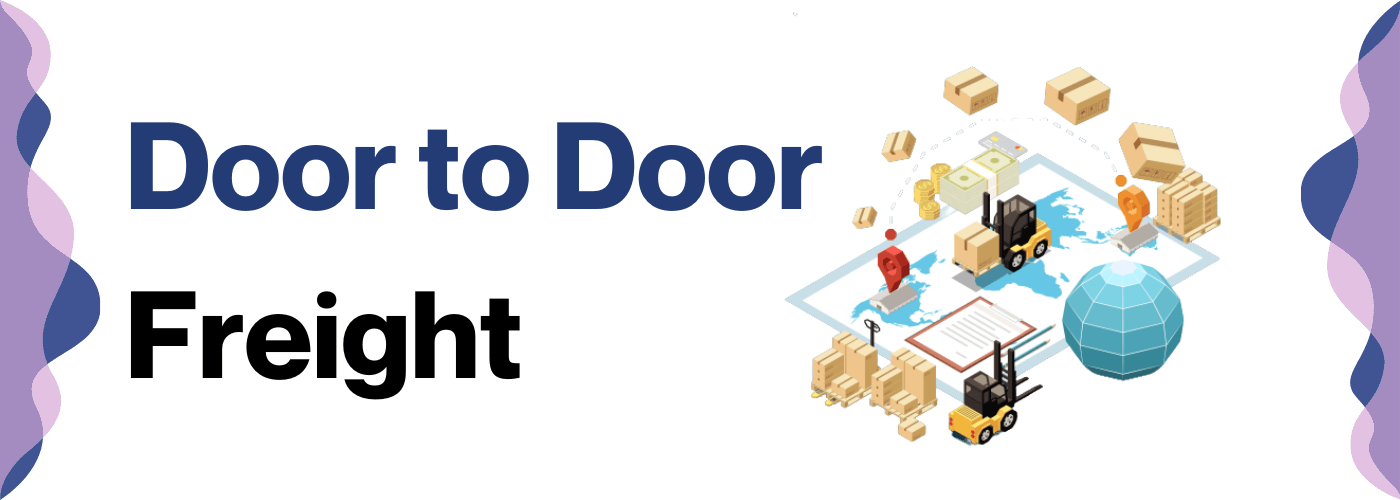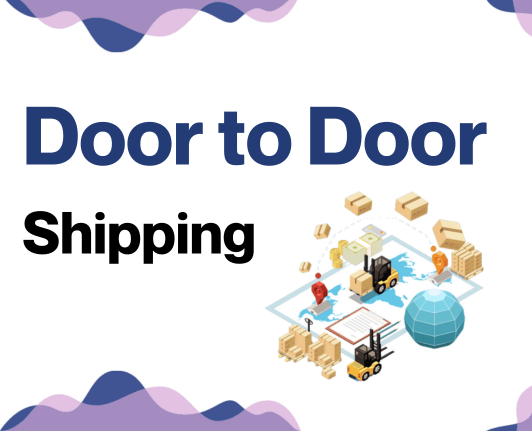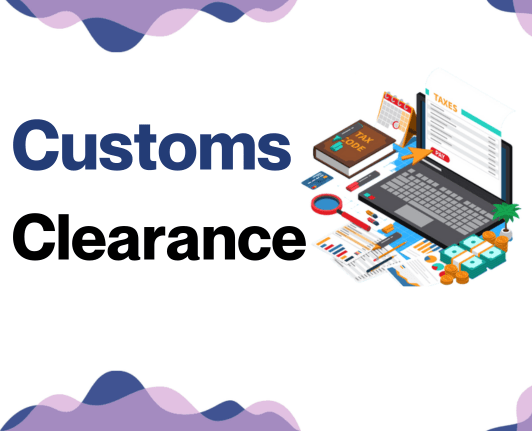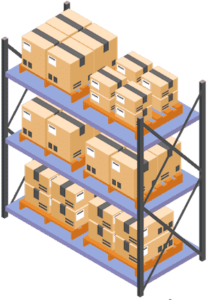Shipping from the UK to Croatia doesn't have to feel like sailing a rubber dinghy up a whitewater rapid! Many businesses agonize over fluctuating freight rates, unpredictable transit times, and ever-changing customs regulations.
But don't worry, this guide is crafted keeping you in mind, shedding light on different freight options—be it air, sea, road, or rail, insight on customs clearance, the intricacies of duties and taxes and, above all, specialised advice for businesses eyeing this shipping route.
If the process still feels overwhelming, let DocShipper handle it for you! We're more than an international freight forwarder; we're your cargo cheerleader, turning every shipping challenge into a triumphant business success.
Table of Contents
Which are the different modes of transportation between UK and Croatia?
Choosing the most efficient way to move goods from the UK to Croatia can feel like solving a complex puzzle. You've got to consider the chilly miles of the North Sea and the twists, turns of European terrain.
Air might seem like the fastest option, but is it economical? Rail and road can be scenic routes, but what about time? Sea transport can handle bulk loads, but what's the trade-off?
Our guide can help you find the sweet spot between speed, cost, and capacity for your specific shipping needs across these specific locations. Ready for the adventure? Let's dive in!
How can DocShipper help?
Looking to ship goods from the UK to Croatia? DocShipper has your back. From managing transport logistics to dealing with customs clearance, our global experts enable worry-free trade. Don't let shipping hassles hinder your growth. Contact us today for a free estimate within 24 hours or for a free consultation with our advisors.
DocShipper Tip: Ocean freight might be the best solution for you if:
- You're dealing with large quantities or oversized items. Sea freight offers a budget-friendly way to maximize space, a particularly useful option given the UK's extensive port network.
- Your shipment isn't on a tight schedule. Ocean transport typically takes longer than air or rail, but it offers reliability.
- Your supply chain involves key ports, allowing you to take advantage of a wide-reaching network of sea lanes.
Sea freight between UK and Croatia
Ocean shipping between the UK and Croatia, two active trade partners, is a thriving route bridging vital industrial centers. Key cargo ports such as the Port of Rijeka in Croatia and the Port of Felixstowe in the UK, play fundamental roles in this connectivity.
Sea freight, albeit slower, stands as a cost-effective choice for high-volume goods, making it a significant player in international trade. However, it's not always smooth sailing. Mistakes and complexities often occur, posing challenges for shippers.
Recognize this scenario? You're not alone. High costs due to miscalculations, complex paperwork, or misunderstood customs regulations can feel like we are trying to solve a Rubik's cube in the dark. But with best practices, it can be as simple as a daily Sudoku puzzle.
In this guide, we'll tackle these pain points, providing clear instructions, reducing the complexity typically associated with shipping between these two nations. We turn the spotlight on your challenges, transforming them into achievable tasks that make sea shipping as straightforward as possible.
Main shipping ports in UK
Port of Felixstowe
Location and Volume: Located on the East Coast of England, in the county of Suffolk, the Port of Felixstowe is Britain's biggest and busiest container port, handling more than 4 million TEUs annually. This port provides an integral link between the United Kingdom and the rest of Europe, making it an essential hub for global trade.
Key Trading Partners and Strategic Importance: The Port of Felixstowe is very well connected, with over 700 ports worldwide - a clear indication of its strategic importance in the global shipping industry. It also has key trading partnerships with China, North America, and the Middle East.
Context for Businesses: If you're looking to expand your business to the global market, then the Port of Felixstowe may serve to be a key component of your logistics, given its extensive shipping routes and ultra-modern facilities, so your goods can be transported efficiently.
Port of London
Location and Volume: Occupying a significant position on the Thames River, the Port of London is UK's second-largest port. It handles over 50 million tonnes of cargo annually and offers quick connections to the heart of London city.
Key Trading Partners and Strategic Importance: The port has partnerships with over 80 countries across the globe, predominantly dealing with European markets. It has strategic importance for breakbulk, bulk, and containers.
Context for Businesses: If your business is dealing with bulky goods or you're planning to tap into the European markets, then considering the services of the Port of London could be beneficial due to its specialized infrastructure and strategic location.
Port of Southampton
Location and Volume: Located on the South coast of England, the Port of Southampton is the UK's premier trading gateway with the world, handling approximately 900,000 TEU annually.
Key Trading Partners and Strategic Importance: This port is extensively connected with the Far East, Europe, and the Americas, making it strategically important to a wide range of industries.
Context for Businesses: If you're interested in reaching markets in the Far East, Europe, or the Americas, the Port of Southampton's extensive network plays a crucial role in enabling efficient, cost-effective, and sustainable transport of goods.
Port of Liverpool
Location and Volume: Situated on the estuary of the River Mersey, the Port of Liverpool handles more than 33 million tonnes of cargo and around 650,000 TEUs annually.
Key Trading Partners and Strategic Importance: Liverpool has a strong trading connection with America, the Middle East, and the Far East, playing a key role in the country's overall trade balance.
Context for Businesses: The Port of Liverpool could be a strategic choice for your logistics needs if you're planning to expand to America or the Middle East due to its strong trade connections and extensive facilities.
Port of Tees and Hartlepool
Location and Volume: Located in the Northeastern part of England, it is one of the UK's leading major ports with an annual cargo handling over 40 million tonnes.
Key Trading Partners and Strategic Importance: This port's key trading partner includes European countries. It has become a strategic location for the offshore wind industry due to its geographical proximity to the major wind farms.
Context for Businesses: If your business is within the renewable energy industry or targets European markets, the Port of Tees and Hartlepool’s strategic location provides access and close proximity to key markets and industries.
Port of Bristol
Location and Volume: Located at the mouth of the River Avon, the Port of Bristol sees a yearly traffic of around 12 million tonnes of cargo, and has facilities for handling containers, cars, and break bulk.
Key Trading Partners and Strategic Importance: Trading partners include North America, the Far East, and western Europe, making it an important part of international trade.
Context for Businesses: For businesses looking to serve Western Europe or the Americas, Port of Bristol is a viable option with its direct access to the UK motorway network, thereby providing efficient inland access.
Main shipping ports in Croatia
Port of Rijeka
Location and Volume: The Port of Rijeka is located in northern Croatia along the Adriatic Sea. It is the country's largest port, handling around 13.1 million tons of cargo and 214,348 TEUs annually.
Key Trading Partners and Strategic Importance: The port maintains strong trade relationships with central and southeastern European countries, particularly Hungary, Slovakia, Czech Republic, Serbia, and Austria. Its geographical position makes it a vital entry point for goods destined for these landlocked countries.
Context for Businesses: If you're looking to target central and southeast European markets, the Port of Rijeka could be an integral part of your logistics strategy, given its established trading routes and strong inland connections.
Port of Split
Location and Volume: Situated in the heart of the Adriatic Sea, the Port of Split is renowned for being one of the busiest passenger ports in the Mediterranean, handling more than 4 million passengers per year. While not primarily a cargo port, Split processes goods primarily from Italy and Greece, with an annual handling capacity around 2.1 million tons.
Key Trading Partners and Strategic Importance: The key trading partners for Split are primarily Mediterranean countries. It has a strategic location, making it an excellent choice for businesses shipping goods across the Adriatic Sea.
Context for Businesses: For businesses looking for passenger transport or smaller-scale goods shipping between Mediterranean countries, the Port of Split offers a strategic and bustling nexus.
Port of Ploce
Location and Volume: The Port of Ploce, located on Croatia’s Dalmatian coast, is the country's second-largest cargo port. It handles almost 4.5 million tons of cargo per year, making it a significant hub for bulk cargo.
Key Trading Partners and Strategic Importance: Main trading partners include Bosnia and Herzegovina, owing to its strategic inland connections with this country. The port also specializes in handling bulk cargo like minerals, timber and grain from across Europe.
Context for Businesses: If your business deals with the export or import of bulk goods with Bosnia and Herzegovina, the Port of Ploce is ideally situated, offering efficient cargo handling capabilities for such commodities.
Port of Zadar
Location and Volume: Found in the middle of Croatia's Adriatic coast, the Port of Zadar is not only known for passenger traffic but also for its annual cargo volume of 890,000 tons.
Key Trading Partners and Strategic Importance: The Port of Zadar has connections with many Mediterranean countries, especially Italy, and serves as a key point for the shipment of agricultural products.
Context for Businesses: Companies involved in the shipping of food and agricultural goods would find the Port of Zadar useful, given its specialist handling facilities for these types of products, and frequent passenger traffic might serve as an additional market for such goods.
Should I choose FCL or LCL when shipping between UK and Croatia?
Choosing the best sea freight option for shipping goods from the UK to Croatia isn't just about tossing a coin in the air; it can make or break your logistics strategy.
Whether you opt for Full Container Load (FCL) or Less than Container Load (LCL), more commonly known as consolidation, impacts cost efficiency, delivery times, and ultimately, business success.
This section explores the pros and cons of these commonly used options, aiming to provide the knowledge you need to make an empowering decision that suits your specific cargo requirements. Let's dive in.
LCL: Less than Container Load
Definition: LCL, or Less than Container Load, is a shipping technique where different shipments from different shippers are consolidated into one container. This method is often chosen for its relatively reduced costs and flexibility, especially when dealing with volumes less than 13/14/15 CBM.
When to Use: LCL shipping is ideal if your freight occupies less than half the capacity of a full container. This is equivalent to less than two-thirds of a 20-foot shipping container. It could be an attractive option when importing or exporting smaller amounts of goods between the UK and Croatia where the frequencies of transit are less, or where the urgency of your shipment is low.
Example: Consider a business shipping boutique furniture from London to Zagreb. Instead of waiting to accumulate enough inventory for a full container, the company opts for LCL shipping, sending smaller volumes more frequently. This doesn't tie up resources in inventory and ensures a regular supply of goods in Croatia.
Cost Implications: Despite higher fees per unit, LCL shipping can be more economical overall due to shared container costs. Moreover, not having to maintain extensive stock can alleviate your warehousing costs, contributing to overall cost reduction. However, it's crucial to compare the LCL freight costs and your inventory costs with FCL costs for a fair evaluation.
FCL: Full Container Load
Definition: FCL shipping, or Full Container Load, refers to an exclusive option where an entire container is used for one consigner’s goods. As the name suggests, a fcl container – either a 20'ft or 40'ft container – is dedicated solely to one shipment.
When to Use: This is a well-suited option if your cargo volume exceeds 13/14/15 CBM. The key benefits of FCL lie in cost-effectiveness and security; it's less expensive when moving large volumes, and your goods are safely sealed inside the container from origin to destination.
Example: For instance, a UK-based company supplying machinery parts to Croatia may find FCL as their go-to option. Given that their shipments are usually more substantial, requiring a 20'ft container, they profit from FCL shipping as the cost per unit is cheaper and the risk of damage or loss is minimized.
Cost Implications: On obtaining an FCL shipping quote, businesses will often discover that the more substantial the cargo, the cheaper the cost per unit sent. However, keep in mind the cost of the container rental, which increases with the size (20'ft or 40'ft). Also, despite the initial cost, the additional security provided can potentially save you expenses in the long term.
Unlock hassle-free shipping
Choosing between consolidation or a full container for shipping from the UK to Croatia can feel like a puzzle. Not with DocShipper! We're simplifying international shipping one cargo at a time. Our ocean freight experts will consider your budget, timeline, and cargo size to provide the perfect solution. Why leave things up to chance when you can make informed decisions? Don't just ship, ship smart with DocShipper. Contact us now for your free freight estimation!
How long does sea freight take between UK and Croatia?
The average sea freight transit time between the UK and Croatia is quite variable, usually ranging between 6 to 14 days. This duration often depends on several factors including the specific departure and arrival ports used, the weight, and the type of goods being shipped. For a custom and accurate quote, it might be ideal to consult an experienced freight forwarder like DocShipper.
Now, let's give you a glimpse of transit times between major ports in these two countries:
| UK Ports | Croatia Ports | Average Transit Time (Days) |
| Port of Felixstowe | Port of Rijek | 14 |
| Port of Southampton | Port of Zadar | 10 |
| Port of Liverpool | Port of Split | 12 |
| Port of London | Port of Ploče | 13 |
*Please note that these times are estimates and actual transit times may vary.
How much does it cost to ship a container between UK and Croatia?
Shipping a container between the UK and Croatia? Ocean freight rates can vary widely - think in the ballpark of $20 to $200 per cubic meter (CBM).
An exact price, however, remains elusive due to a slew of potential variables: the nature of your goods, your Points of Loading and Destination, the carrier you're using, and even monthly market fluctuations. Rest assured, identifying the optimal shipping cost is our specialty.
Our shipping specialists meticulously scrutinize these details and provide rates on a case-by-case basis, ensuring you get the most value.
Special transportation services
Out of Gauge (OOG) Container
Definition: OOG containers, also known as Out of gauge cargo, are specialized containers designed to handle large, heavy or awkwardly-shaped items that cannot fit in standard containers.
Suitable for: This shipping option is best for oversized machinery, vehicles, and equipment.
Examples: Examples of cargo perfect for OOG container include large machinery like construction equipment, turbines, windmill blades, generators, and boats.
Why it might be the best choice for you: If you're shipping large or irregular-sized items from the UK to Croatia and need a solution that ensures safety while abiding by transport regulations, OOG containers might be your best bet.
Break Bulk
Definition: Break bulk involves shipping goods piece by piece or unit by unit. This method separates cargo that cannot fit or suit a container.
Suitable for: Break bulk is suitable for shipping voluminous, heavyloads items which aren't suitable for containerization.
Examples: These loads can include things like steel beams, wood, project cargo and heavy machinery.
Why it might be the best choice for you: This could be a great option if you're transporting large items or equipment that can't be disassembled and must remain as a single unit during transport.
Dry Bulk
Definition: Dry bulk refers to shipping loose cargo load, like grains, coal or gravel, which is loaded directly in the ship's hold.
Suitable for: Dry bulk is particularly suitable for shippers dealing with solid commodities in large quantities.
Examples: Examples of dry bulk cargoes could include coal, grains, or minerals.
Why it might be the best choice for you: If your business involves transporting unpackaged commodity goods, shipping via dry bulk could be the most economical and efficient solution.
Roll-on/Roll-off (Ro-Ro)
Definition: Roll-on/Roll-off, or Ro-Ro, involves a specialized ro-ro vessel which allows wheeled cargo, such as cars, trucks, trailers, and machinery, to be driven on and off the ship.
Suitable for: Any wheeled cargo or equipment that can move within the vessel under its own power or by a movable platform.
Examples: It's an efficient way to transport vehicles such as cars, trucks, tractors, or heavy machinery like cranes and excavators.
Why it might be the best choice for you: If you're dealing with wheeled cargo that can easily roll on and off the ship, then Roll-on/Roll-off transport could be a resource-efficient, cost-effective choice.
Reefer Containers
Definition: Refrigerated containers, or reefer containers, are temperature-controlled containers used to ship perishable goods across long distances.
Suitable for: Goods that require specific temperature or humidity conditions during transit, especially perishables.
Examples: These can include foods such as fruits, vegetables, dairy products, and also pharmaceuticals.
Why it might be the best choice for you: If you're shipping temperature-sensitive products from the UK to Croatia, a reefer container can ensure your products arrive fresh and unspoiled.
When you're ready, DocShipper is here to guide you through all the possibilities about sea freight shipping options. Contact us for a free shipping quote in less than 24h and let us handle all the complexities of international shipping for you.
DocShipper Tip: Air freight might be the best solution for you if:
- You're facing tight deadlines or need rapid delivery. Air freight is your quickest option, which aligns well with the fast-paced business environment.
- Your shipment is relatively small, under 2 CBM. Air freight is ideal for these more compact loads.
- Your cargo's destination isn't easily reached via sea or rail. This makes air freight a viable option, especially given the extensive network of airports available.
Air freight between UK and Croatia
Air freight between the UK and Croatia is a winning choice for quick, reliable shipping, especially if you're sending small but valuable items. Need to ship electronics, medications, or high-fashion items? Congratulations, you've found your match in air freight! This method excels in speed and reliability, getting your goods to Croatia with the snap of a finger.
Despite air freight's many advantages, many shippers stumble when considering cost. It's easy to trip up, misjudging the weight of your goods or underestimating fees. Such mistakes can overinflate costs, making what looked like a smart choice into a pricey blunder.
In this guide, we'll show you the ropes, exposing those hidden tripwires in air freight's cost calculation and teaching you the tricks of the trade. With our guidance, you'll ship smarter, not harder!
Air Cargo vs Express Air Freight: How should I ship?
Struggling to choose between Air Cargo and Express Air Freight for shipping your goods between the UK and Croatia? Let's simplify: Think of Air Cargo as securing a seat for your product on a shared airline while Express Air Freight is splurging on a private plane for a rapid, dedicated service.
Time to break down these choices, their pros, and cons, to help your business make an informed decision. Let’s launch!
Should I choose Air Cargo between UK and Croatia?
Air cargo between the UK and Croatia could lend to cost-effectiveness and dependability for your freight needs. You can rely on major airlines like British Airways and Croatia Airlines, providing considerable transparency.
However, bear in mind the potentially longer transit times due to set schedules. Besides, if your cargo weighs between 100-150 kg (220-330 lbs), you might find this option increasingly attractive.
Always assess alternatives to strike the best balance between budget and speed.
Should I choose Express Air Freight between UK and Croatia?
Choosing express air freight, a service provided by firms like Fedex, UPS, or DHL, might just be the best decision for your light-weight shipping needs.
Utilizing dedicated cargo planes, express air freight ensures quick, reliable delivery for shipments generally under 1 CBM or between 100/150 kg (220/330 lbs). If speed is critical and your cargo weight is within this range, then this service, renowned for its streamlined customs clearance, is a beneficial choice.
Not only will your cargo reach Croatia from the UK swiftly, but using such a service could also eliminate some challenges attached to international shipping, making your shipping experience breezier.
Main international airports in UK
London Heathrow Airport
Cargo Volume: With over 1.2 million metric tonnes of cargo handled annually, London Heathrow is the largest cargo airport in the UK.
Key Trading Partners: Primarily linked to the USA, China, and EU, the airport's extensive global network includes almost all major economies.
Strategic Importance: Heathrow's location in the South East and close proximity to major population centres and ports make it invaluable for business.
Notable Features: The airport houses 100+ airlines and is renowned for its advanced security and handling facilities.
For Your Business: If you’re seeking flexibility, reach, and reliable handling, Heathrow might be ideal for your cargo operations.
London Gatwick Airport
Cargo Volume: The airport handles over 100,000 metric tonnes of cargo annually, making it a significant player in the UK's cargo landscape.
Key Trading Partners: Key partners include the EU, the Middle East, and Africa, with important consignments to the Americas as well.
Strategic Importance: Its Southern location provides easy access to London, England's south coast, and a number of important cities.
Notable Features: Gatwick hosts an impressive range of carriers and has a dedicated cargo handling area.
For Your Business: Looking for easy access to southern England and a wide route network? Gatwick could be a solid choice for your shipment logistics.
East Midlands Airport
Cargo Volume: Handling over 60,000 tonnes of cargo annually, East Midlands is the UK's busiest pure cargo airport.
Key Trading Partners: Trading partners largely comprise European countries, alongside a substantial volume of business with North America.
Strategic Importance: Acting as an important cargo distribution hub in the heartlands of England, it's favorably positioned near the M1 and major rail networks.
Notable Features: The airport boasts a 24-hour operational window and dedicated cargo infrastructure.
For Your Business: High-volume, round-the-clock operations? East Midlands may suit your regular, high-demand shipping requirements.
Manchester Airport
Cargo Volume: Manchester Airport handles more than 120,000 tonnes of cargo annually.
Key Trading Partners: Key trading partners include countries from the Middle East, the Americas, and Europe.
Strategic Importance: As the principal international gateway to the North of England, it enjoys a strategic geographical advantage.
Notable Features: Home to many leading air cargo operators, the airport provides modern cargo facilities.
For Your Business: If your cargoes are destined for or originate from the North of England, Manchester Airport could provide an effective shipping solution.
Stansted Airport
Cargo Volume: With cargo volumes of over 258,000 metric tonnes in 2022, Stansted is a significant cargo airport in the UK.
Key Trading Partners: Mainly trades with Europe, the Middle East, and North America.
Strategic Importance: Its location in the South East of England near London, Cambridge, and the East of England coast makes it a strategic cargo hub.
Notable Features: The airport has extensive temperature-controlled handling facilities for pharmaceutical and perishable goods.
For Your Business: Streamlining your pharma supply chain, or dealing with perishables that need careful handling? Stansted may fit perfectly into your shipping strategy.
Main international airports in Croatia
Zagreb Airport
Cargo Volume: Approximately 13,000 tons of cargo per year.
Key Trading Partners: Primarily European Union member countries, especially Germany, Italy, and France.
Strategic Importance: As the largest and busiest airport in Croatia, Zagreb Airport is the hub for international cargo operations.
Notable Features: Offers modern cargo facilities including a cargo center and warehouses handling all types of general and special cargo.
For Your Business: Being strategically located in the capital city, this airport could provide ease in access and convenience in transportation to and from your business, with its extensive global network and modern facilities.
Pula Airport
Cargo Volume: Handles approximately 1,000 tons of cargo annually.
Key Trading Partners: Primarily Italy, Germany, and the UK.
Strategic Importance: Pula Airport's geographical position makes it a favorable import/export point in the region.
Notable Features: This seasonal airport allows for increased cargo traffic during peak summer months.
For Your Business: If your trade operations are seasonal or if you deal with perishable goods, the Pula Airport can offer increased capacity during peak months.
Split Airport
Cargo Volume: Around 1,000 tons of cargo per year.
Key Trading Partners: Germany, the UK, and Austria.
Strategic Importance: Split Airport is of strategic importance due to its proximity to Split's harbor, one of the busiest ports in the Mediterranean, offering the convenience of multi-modal transport operations.
Notable Features: The airport has undergone extensive modernization and has a dedicated cargo terminal.
For Your Business: If your shipping strategy includes multi-modal transport solutions, Split Airport's proximity to a major seaport might be significant for your shipping routes.
Rijeka Airport
Cargo Volume: Approximately 500 tons annually.
Key Trading Partners: Primarily Germany, Hungary, and Italy.
Strategic Importance: Rijeka Airport's location near the seaport of Rijeka, important railways, and motorways increases its strategic value.
Notable Features: Rijeka Airport possesses a combination of road, air, sea, and rail accessibility, offering comprehensive intermodal services.
For Your Business: If your strategy involves diversification of shipping modalities, the location of Rijeka Airport can provide a unique advantage.
Dubrovnik Airport
Cargo Volume: Handles about 400 tons of cargo each year.
Key Trading Partners: Primarily the UK, France, and Italy.
Strategic Importance: Its geographical location grants it a strategic advantage in serving the Mediterranean region.
Notable Features: Despite being a smaller airport, it recently upgraded its cargo handling facilities.
For Your Business: If your business trades primarily with Mediterranean countries, deploying Dubrovnik Airport as a pivot in your shipping strategy could present a competitive edge.
How long does air freight take between UK and Croatia?
Typically, air freight between the UK and Croatia can take roughly 1-3 days. However, it's worth noting that these transit times can vary. Factors such as specific airport locations, the weight and volume of goods, and the nature of the products being shipped can all have an impact.
For precise shipping times tailored to your unique requirements, it's best to consult with a freight forwarder like DocShipper.
How much does it cost to ship a parcel between UK and Croatia with air freight?
Air freight rates between the UK and Croatia average at around £3 to £5 per kg. However, bear in mind that this is a broad estimation. Exact costs depend on various factors — distance, dimensions, weight, nature of goods, and airport fees.
Precise quotes are given case-by-case to ensure you get the best rates. We tailor shipping plans according to your needs and strive to provide the most cost-effective solutions. Expedite your shipping process and save on costs by reaching out to our team. Contact us now and get a free quote within 24 hours.
What is the difference between volumetric and gross weight?
Gross weight refers to the actual weight of the shipment including packaging, measured in kilograms (kg). Volumetric weight, on the other hand, represents the package's 'bulkiness', which takes into account the space it occupies in the air carrier, also measured in kilograms (kg).
In Air cargo shipping, volumetric weight is calculated by multiplying the box's dimensions (length, width, and height in cm) and then dividing by a standard factor, typically 6000. For example, if your shipment box measures 50cm x 40cm x 30cm, the volumetric weight would be (504030)/6000 = 10 kg (or approximately 22 lbs).
Express Air Freight services use a similar method, but generally with a different divisor—5000. Using the same box measurements as before, the volumetric weight for Express would be (504030)/5000 = 12 kg (approx. 26.4 lbs).
Gross weight is simply the sum of your shipment's items along with any packaging. This equals to the weight registered on a standard scale. Suppose our hypothetical box weighs 8 kg (approx. 17.6 lbs) on the scale.
Where these calculations really matter is in the determination of freight charges, as the higher weight between gross and volumetric is what you're billed for.
So, in our examples, Air cargo shipping would bill for the volumetric weight of 10 kg and Express Air Freight for 12 kg, both being greater than the gross weight of 8 kg. In essence, you pay for the space your shipment occupies, not just how much it weighs.
DocShipper tip: Road freight might be the best solution for you if:
- You're seeking a budget-friendly solution for shorter hauls. Road freight often comes out on top in terms of cost-effectiveness and speed for these kinds of distances.
- Your end destination is either within your own continent or just across the border. For such regional or intra-continental shipments, road freight is typically the most direct and rapid method.
- Your cargo has unique dimensions or shapes. The adaptability of trucking allows for a wide range of goods that may not conform to the size limitations of sea or air transport.
Trucking between UK and Croatia
Now, let's delve into the exciting world of trucking services from the UK to Croatia. A versatile choice that exists somewhere between sea and air in terms of transit time, road freight offers a unique blend of speed, cost efficiency, and accessibility.
Think of it: traversing through Europe's picturesque landscapes, taking quality-checked routes tailored for every cargo. What's more, road conditions and weather patterns aren't a major concern most of the year, resulting in minimal delays.
While it might not be faster than air, the price tag certainly is more palatable for budget-conscious businesses. However, it's important to keep an eye on potential complexities like multiple border crossings. Ultimately, trucking strikes a balance - moderately quick, considerably economical, and quite reliable.
What if I can’t fill a truck between UK and Croatia?
Understand the nuances of less-than-truckload (LTL) and full-truckload (FTL) shipping options is key to optimizing your UK-Croatia transport strategy. Tap into vital insights to balance operational flexibility with cost-effectiveness while exporting or importing goods.
This section illuminates this aspect for businesses aspiring to excel in this cross-border logistics.
LTL: Less than Truck Load
Less Than Truck Load (LTL) is a shipping option where several smaller shipments fill up a single truck. If your cargo is less than 13 to 15 CBM (Cubic Meters), LTL freight would be a cost-effective choice. Instead of paying for a full truck that's half empty, you simply pay for the space your goods occupy.
Let's say you are shipping 10 CBM of bicycle parts from London, UK, to Zagreb, Croatia. With LTL, your cargo will share a journey with other shipments, cutting down on transportation costs.
Here are some use cases to help decide if LTL shipment is the right choice for you:
- You're shipping less than 15 CBM of goods.
- You want to manage your shipping costs, paying only for the space you use.
- Delivery time is flexible, you can accommodate longer transit times.
- You'd like shipment tracking and better security as freight is often palletized or crated in LTL.
- You're shipping goods that are durable and less likely to be affected by frequent loading and unloading.
FTL: Full Truck Load
Full Truck Load, commonly known as FTL freight, is a mode of transport where one consignee books an entire lorry to ship their goods. This is an optimal choice when your consignment volume is typically more than 13, 14, or 15 CBM.
Visualise this: you're shipping a batch of furniture from London to Zagreb. This batch occupies 16 CBM. In such a scenario, it would be wise to opt for an FTL shipment. This way, you have the full control and convenience of moving the freight at your pace and preference.
Here are some use cases helping you to evaluate if FTL is your perfect match:
- Heavy loads - If your consignment weighs on the heavier side, quite literally in terms of volume.
- Sensitive goods - If your cargo requires special handling or is extremely sensitive.
- Time-bound - If you're chasing a stringent deadline and can't afford co-loading time.
- Maximum security - If security is of paramount importance due to high value or fragility.
- Direct route - If your shipment requires a single, unbroken journey without stops to unload other consignments.
Identifying your needs and matching them with these FTL benefits can make your UK-Croatia freight forwarding a seamless journey.
What are the main routes between UK and Croatia?
The two main road routes from the UK to Croatia take you on a journey through some of Europe’s most captivating landscapes. Route one, the quickest and most traveled, starts in London, sweeping through Belgium, Germany, Austria, and Slovenia before entering Croatia - primarily using the E40, E35, E45, and E70 highways.
A splendid alternative, route two, meanders through France, Switzerland, Italy, and Slovenia featuring highways E40, E25, E35, and E70. Factors such as weather, traffic congestion, and road work often influence the choice and pace. Key connecting cities include Frankfurt, Munich, Vienna, and Ljubljana. It’s always advisable to stay updated with real-time traffic information to ensure a smooth freight journey.
What are the road transit times between UK and Croatia?
Road transport from the UK to Croatia typically averages around 20-25 hours. However, it's important to understand that these times can vary significantly due to daily traffic congestion, circulation schedules, or poor road conditions in some regions.
For example, you may experience delays crossing the Alps or during peak holiday traffic in France. Keep in mind, these are rough estimates. For a more precise and customized timeframe, feel free to request a cross-border freight quote from us, we'll get back to you in less than 24 hours.
How much does trucking cost between UK and Croatia?
Nailing down an exact price for truck freight from the UK to Croatia might feel like trying to catch a greased pig at a barn dance - challenging! Variables like type of goods, weight, and required transit time all do-si-do around, affecting the cost.
But don't fret, we're here to twirl you through this process, giving customized quotes that'll make your wallet happy. Each case is a new dance for us, so remember, your best rate is always just a call away!
DocShipper tip: Door to Door might be the best solution for you if:
- You prioritize ease and a hassle-free shipping experience. Door-to-door services manage the entire process, from collection to final delivery.
- You appreciate the efficiency of having one dedicated contact. With door-to-door, a single agent is responsible for overseeing all elements of your shipment.
- You want to limit the number of times your cargo is transferred. Door-to-door services minimize the switches between various transport methods, lowering the chances of damage or loss.
Door to door between UK and Croatia
International door-to-door shipping is essentially a comprehensive service that takes your goods from a point of origin right up to the final destination, ensuring a hassle-free experience.
When delivering between the UK and Croatia, its benefits include streamlined customs processes and efficient delivery times. Enough preamble, let's dive right into the world of door-to-door shipping!
Overview – Door to Door
Door-to-door shipping from the UK to Croatia is your ticket to hassle-free logistics. No more juggling shipping schedules or fumbling with customs paperwork - this all-inclusive service handles it all. Though it may cost a tad more, the convenience is unbeatable.
This premium offering addresses and mitigates your logistical challenges, offering a lifeline in an often complex industry. Just ask our satisfied DocShipper clients who swear by its value! Offering practical insights and assistance every step of the journey, it's not just comprehensive, it's customer-focused.
Dive in to discover why door-to-door shipping might just be your new logistics lifesaver.
Why should I use a Door to Door service between UK and Croatia?
Ever tried herding cats? Organizing international shipping can sometimes feel just as challenging! But fear not. Here are five reasons why Door-to-Door service between the UK and Croatia might be your holy grail of freight forwarding.
1. It's an All-In-One Solution: Complete with goods pickup from your warehouse and direct delivery to your client's door. One booking and your logistical headache is gone.
2. Urgently Does It: When speedy delivery is paramount, a Door-to-Door service is your Formula 1 racecar, ensuring your cargo is expedited with the same level of urgency you would give it.
3. Specialised Care: Got custom, fragile, or complex cargo? No worries. Skilled handlers give your goods the white-glove treatment, just as if they were handling artifacts from the Titanic.
4. Stress-Free Logistics: Imagine having a logistics maestro conducting your international shipping symphony. With all the paperwork and protocols handled, your role is just to sit back and enjoy the music.
5. End-to-End Trucking: No need to lift a finger—or a pallet—as all transport links from the truck to the final destination are harmoniously integrated into the service.
In conclusion, Door-to-Door service is a silver-platter service in the freight forwarding world, one that simplifies, accelerates, and harmonizes your shipping process from the UK to Croatia.
DocShipper – Door to Door specialist between UK and Croatia
Expedite your door-to-door shipping between the UK and Croatia with DocShipper! Emphasizing a stress-free experience, our expert team manages every facet of your goods' transportation journey.
Remained unburdened as we deftly navigate packing, transport, customs, and apply the most efficient shipping methods. Effective communication is our promise, your dedicated Account Executive is just a call away.
Opt for our service and anticipate a free estimate within a mere 24 hours. Connect with our specialized consultants at your convenience. Wave goodbye to hassles and trust your shipping needs with DocShipper!
Customs clearance in Croatia for goods imported from UK
If you're shipping goods from the UK to Croatia, acing customs clearance is essential but it can be a complex process. Many businesses grapple with unexpected fees and charges, the intricacies of duties, taxes, quotas, and licenses.
Worse yet, goods could get stuck in customs if not properly managed. But don't worry, our detailed guide ahead covers these areas to help you navigate these pitfalls with ease.
Remember, DocShipper is here to assist with the customs clearance for any goods, from any corner of the world. For a project estimate, contact us with the origin of your goods, their value, and the HS Code. Your journey to successful shipping starts here!
How to calculate duties & taxes when importing from UK to Croatia?
Estimating customs duties when importing goods from the UK to Croatia is not a process to be taken lightly as it incorporates multiple factors - it's like piecing together a puzzle.
You'll need to have a comprehensive understanding of key information such as the country of origin, the Harmonized System (HS) Code, the Customs Value, the Applicable Tariff Rate, plus any additional taxes and fees applicable to your goods.
For instance, if you're importing fine china plates, your HS code might be markedly different from those of automotive parts. Let's kick off this journey from where it all starts – identifying the true country where your goods were manufactured or produced.
This first vital step sets the tone for the remaining journey of getting your goods to their new home.
Step 1 - Identify the Country of Origin
Knowing the country of origin for your goods is a crucial first step in estimating duties and taxes when shipping from the UK to Croatia. But why exactly? Let's explore five key reasons.
First, this identification determines the customs duties applied, if any. Trade agreements, such as the UK-Croatia bilateral pact, may provide certain exemptions or lower tariffs.
Second, specific import restrictions may apply to your goods based on their origin. Certain commodities might be subject to quota limitations or even bans.
Third, every country has its own standards for product quality, safety, and ethics. Knowing your goods' origin helps ensure compliance and avoid potential fines.
Fourth, this information facilitates the classification of products under the HS code system, directing you to the correct category and subsequent charge.
Finally, in some instances, goods of specific origins enjoy preferential treatment, reducing your overall import expenses.
Trade agreements, import restrictions, product standards, and preferential treatments - all these factors stem from the product's country of origin. So, know your goods well. It's more than just a detail; it's the first step towards smart, cost-effective importing.
Step 2 - Find the HS Code of your product
The Harmonized System (HS) Code is a standardized numerical method of classifying traded products. It's used by customs authorities around the world to identify products, making it easier to calculate duties and taxes, and ensuring that regulations and restrictions are correctly applied.
If you're importing goods, the simplest way to find your product's HS Code is to ask your supplier. They're intimately familiar with the goods they produce, and thus, they're likely aware of the corresponding regulations, including the HS Code.
However, if reaching out to your supplier isn't an option, we've got you covered. You can find the HS Code yourself by following these steps:
1. Access the Harmonized Tariff Schedule lookup tool.
2. Input the name or a brief description of the product into the search bar.
3. Find the HS Code for your product in the Heading/Subheading column.
It's crucial to be as accurate as possible when selecting the HS Code for your product. An incorrect code might lead to longer customs clearance times or even additional fees for incorrect declarations.
Here's an infographic showing you how to read an HS code. This visual guide will simplify the process, helping you understand each section of an HS code and its significance.
Step 3 - Calculate the Customs Value
Have you ever wondered how the customs value differs from the product value when importing goods from the UK to Croatia? Let's clear that up! The customs value isn't just about the price you've paid for your goods.
Instead, it's the CIF value - that magic formula that includes the price of goods, international shipping costs, and insurance costs combined.
For instance, if you've bought goods worth $1000, paid $200 for shipping, and $50 for insurance, your total customs value isn't $1000, but rather $1250.
This is the amount you'll pay duties and taxes on. Raw, right? But knowing this saves you from unpleasant surprises at customs and helps streamline your budget. Be smart about your shipping - grasp these hidden costs and you'll find it a lot smoother sailing through customs.
Step 4 - Figure out the applicable Import Tariff
An import tariff is essentially a tax imposed on goods arriving from a foreign country. In the context of Croatia, it follows the Combined Nomenclature (CN) tariff system, which is standard for European Union members.
To determine the applicable tariff, start with the TARIC System - European Customs. Here, input the Harmonized System (HS) code of your product and the country of origin, which in this case, would be the United Kingdom.
For instance, let's say you're importing sneakers from the UK, which carries the HS Code 6403. These are subject to a standard duty rate of 16.9% in Croatia. Now, assume your CIF (Cost, Insurance, Freight) value is $10,000. Your import duty, therefore, can be calculated as:
Import duties = Import Tariff rate (%) x CIF value ($) = 16.9% x $10,000 = $1,690
So, you would pay $1,690 as import duties for this particular shipment. Understanding your specific import tariff can go a long way in predicting costs and planning for logistics effectively.
Step 5 - Consider other Import Duties and Taxes
When importing goods from the UK to Croatia, in addition to the standard tariff rate, you might be subject to other import duties and taxes, depending on the country of origin and the product's nature.
For example, excise duty is levied on tobacco, alcohol, and energy products. Excise duty rates are often fluctuating; as a rough guide, you could be looking at a rate of $50 per 100 liters of beer.
Alternatively, anti-dumping taxes might apply if the goods are sold much below the normal price. This prevents cheap imports from overtaking the local market.
For instance, should you import PVC films priced significantly lower than market standards, an extra fee of around 13.8 % could be imposed.
Most importantly, you need to be aware of the Value Added Tax (VAT). The standard VAT rate in Croatia is 25%, meaning importing goods worth $100 would result in a VAT charge of $25. Certain products like books or medicines attract a reduced VAT rate of 5%.
Remember, these are just examples and actual rates can vary. It's crucial to gain precise and up-to-date information specific to the product and its country of origin.
Step 6 - Calculate the Customs Duties
Calculating customs duties, also called import duties, can feel daunting. But with the right formula, you're all set. Here's a simple breakdown: the customs value (price of the goods + transport and insurance costs) multiplied by the duty rate determines your customs duty.
VAT is then calculated from the total sum of the customs value and duty, while anti-dumping taxes and Excise Duty are occasional extras, depending on the nature of your goods.
Let's illustrate with examples:
1. Your freight costs $10,000 with a duty rate of 5% and no VAT. Your customs duty is $500 ($10,000 5%).
2. Your freight costs $20,000 with a duty rate of 10% and a VAT of 15%. Your customs duty is $2,000 ($20,000 10%). Your VAT is $3,300 (($20,000 + 2,000) 15%).
3. Freight costing $30,000, a duty rate of 5%, VAT at 25%, and an anti-dumping tax of 4% with Excise Duty of $500. The customs duty is $1,500 ($30,000 5%) and the VAT amounts to $7,875 (($30,000 + $1,500 + 4% of $30,000 + $500) 25%).
Remember, with DocShipper's customs clearance services, you’ll never have to tackle these calculations alone. We’re dedicated to ensuring your cargo clears customs swiftly, helping you avoid overcharges.
Seek our guidance or a free quote within 24 hours by contacting us. We are here to facilitate your global trade adventures, one shipment at a time.
Does DocShipper charge customs fees?
As a customs broker in the UK and Croatia, DocShipper doesn't charge customs duties. These charges go straight to the government, separate from our customs clearance service fee. No hidden costs - the documents we provide you from the customs office bear testament to this.
Think of it like the tax you pay at a restaurant: the restaurant collects it, but the money goes to the government, not the restaurant's pocket. You are only paying what's owed to the customs office, proving transparency in our dealings.
Contact Details for Customs Authorities
UK Customs
Official name: Her Majesty's Revenue and Customs (HMRC)
Official website: https://www.gov.uk/government/organisations/hm-revenue-customs
Croatia Customs
Official name: Customs Administration of the Republic of Croatia
Official website: https://carina.gov.hr/en
Required documents for customs clearance
Understanding the maze of required documents for customs clearance can seem daunting. The paperwork, including the Bill of Lading, Packing List, Certificate of Origin, and Documents of Conformity (CE standard), is essential for a hiccup-free process. Don't fret, we're here to decode these for you, ensuring you dictate the terms of your trade exchange smoothly.
Bill of Lading
When shipping goods from the UK to Croatia, a critical step is getting your hands on that Bill of Lading (BOL). Think of it as the golden ticket that certifies the legal ownership of your products. Without it, your cargo is stuck in limbo! This BOL also serves as proof of contract between the shipper and the carrier, reassuring all parties involved.
Now, here’s where you can leapfrog some of the paper-chasing. By opting for an electronic or telex release, you'll have quick, paperless access to your BOL. It not only minimizes bureaucratic delays but also lower costs associated with physical courier services. Shifting gears to air cargo, the Air Waybill (AWB) takes the BOL’s place.
The bottom line is: don’t underestimate the BOL or AWB - they're the passports for your cargo!
Packing List
Shipping goods in and out of Croatia and the UK can be complex, but accuracy in your packing list is elemental. Acting as your cargo's ID card, this crucial document details quantity, description, and type of goods you're transporting.
Whether you're dealing with ocean cargo of furniture to Split or a quick air freight consignment of auto-parts to London, customs authorities on both sides of the journey rely heavily on this paperwork to verify what's inside your container or pallet.
It helps officials corroborate duties, prevent illegal trade, and expedite clearance. So, if a crate of machine components mistakenly gets labelled as 'clothing,' it will only slow down the process.
Be precise and thorough when putting together your packing list, as the success of your cross-border shipment partly rides on it. It’s all about ensuring seamless movement for your goods.
Commercial Invoice
When shipping goods between the UK and Croatia, your Commercial Invoice will serve as a lifeline during customs clearance. This document validly lists all your items' details, including their descriptions, quantities, and values. It's like introducing your cargo to foreign customs officers! Accuracy is fundamental; ensure the details align with those on your Bill of Lading or Airway Bill. Try to avoid discrepancies, as they can cause delays, additional costs, or worse, seizure of your cargo. Imagine shipping a unique collectable only for it to get stuck - what a nightmare! Stick to transparent and honest descriptions, as any 'mysterious packages' might just raise customs' eyebrows. So, remember to always double-check everything on your Commercial Invoice - your cargo's safe journey depends on it!
Certificate of Origin
Navigating customs between the UK and Croatia? Your Certificate of Origin (CoO) is your best friend. This vital document verifies your goods' country of manufacture, a key fact for customs officials. Hold up, what's so special about this? Well, preferential customs duty rates could be in your future by just stating the product's origin. Let's say you're shipping artisan chocolates from the UK. Your CoO verifies they're British-made, which might qualify you for reduced or even waived duties, sweetening your deal. So, don't skip the CoO, it turns your logistics into a strategic advantage. Remember, every penny counts in your international shipping journey.
Certificate of Conformity (CE standard)
Transferring goods from the UK to Croatia requires various documents, one of which is the Certificate of Conformity or CE standard. This certification confirms your product meets EU health, safety, and environmental requirements. It's not quite the same as product quality assurance - rather, it’s an entry ticket to the European market space ensuring that consumer safety is paramount.
However, post-Brexit, the UK has introduced a UKCA (UK Conformity Assessed) marking for goods being sold in Great Britain. To bridge the gap between UK and European standards, be sure to double-check your consignment's compliance with both CE and UKCA requirements to avoid hiccups at the customs point.
To clarify, in the context of the US, CE is somewhat similar to the FCC (Federal Communications Commission) and UL (Underwriters Laboratories) standards. Always consider the certifications needed in your target market to ensure smooth transit.
Your EORI number (Economic Operator Registration Identification)
Understanding the role of an EORI number in your UK to Croatia shipment process is vital. This unique ID helps track your goods, making customs clearance smoother in EU countries, despite the UK no longer being an EU member.
To get an EORI number in the UK, you need to apply through the HM Revenue and Customs (HMRC). On the other hand, if you're based in Croatia, you can get it by applying at the Customs Administration of the Republic of Croatia.
Don't underestimate the EORI – without it, delays are almost a guarantee, and nobody loves late arrivals! Securing an EORI number is one of the first steps towards a successful, hiccup-free shipping experience between the UK and Croatia.
Get Started with DocShipper
Overwhelmed by customs clearance in your UK-Croatia shipment? Fear no more! Our dedicated DocShipper team expertly navigates these complexities on your behalf, for smooth, worry-free transactions. Why not reach out today for a free, no-obligation quote? We promise a response within 24 hours. Your uncomplicated shipping experience begins here.
Prohibited and Restricted items when importing into Croatia
Understand what you can or can't bring into Croatia to avoid entanglements at customs. Sometimes, what may seem harmless to you could be on a restricted or prohibited list. Befuddled? Let's take the mystery out of Croatian import regulations together.
Restricted Products
1. Pharmaceuticals: You'll need a permit from the Agency for Medicinal Products and Medical Devices of Croatia (HALMED).
2. Pesticides and related products: You must secure authorization issued by the Ministry of Agriculture.
3. Precursor chemicals: Stay compliant by obtaining a license from the Ministry of Health.
4. Weapons and ammunition: You will require a permit from the Ministry of the Interior .
5. Plants, seeds, and plant products: You should apply for a phyto-sanitary certificate from the Ministry of Agriculture.
6. Live animals and animal products: Make sure to apply for a veterinary certificate from the Ministry of Agriculture.
7. Cultural goods: All items considered cultural heritage require a permit issued by the Ministry of Culture and Media.
8. Radioactive material: If you're shipping these, you'll need approval from the State Office for Radiological and Nuclear Safety.
9. Food and drinks (including alcohol and tobacco): Get your food and beverage import licenses from the Ministry of Agriculture.
10. Endangered species (Flora and Fauna): If you're trading in endangered species, you'll require a CITES permit from the Ministry of Environment and Energy.
Remember, this list is a starting point and won't cover all possibilities. Always verify with local regulations and appropriate bodies before shipping!
Prohibited products
- All categories of illegal drugs
- Weapons and ammunition without appropriate permits
- Indecent and obscene material like child pornography
- Plant and plant products without a phytosanitary certificate
- Raw meat and foodstuffs of animal origin from non-European Union countries
- Counterfeit and pirated goods
- Protected species and products derived from them, according to the CITES (Convention on International Trade in Endangered Species of Wild Fauna and Flora)
- Products that infringe on protected Croatian national treasures.
Are there any trade agreements between UK and Croatia
Yes, the UK and Croatia enjoy an established trade environment, thanks to the Trade and Cooperation Agreement struck post-Brexit. This comprehensive agreement smooths the way for the shipping of goods, reducing potential barriers.
Plans to further bolster UK-Croatia trade are underway, with various industry forums actively promoting partnerships. Improved rail connectivity is one such focus, which could offer exciting new avenues for efficient goods transport in the future. Remember, understanding these agreements can significantly influence your shipping strategy and bottom line.
UK - Croatia trade and economic relationship
Ever since Croatia's accession into the EU in 2013, UK-Croatia trade relations have seen a steady upward trend. Notable sectors connecting both economies include tourism, pharmaceuticals, and oil exploration.
British companies like GlaxoSmithKline and AstraZeneca have made essential inroads in the pharmaceutical industry, while INA, a Croatian multinational oil company, has been a significant player in the UK. As of 2022, UK exports to Croatia amounted to £507.0 million. Equally, Croatia's exports to the UK were amounted to approximately £193.5 million.
Investment-wise, UK direct foreign investments tally up to £425 million as of 2022, strengthening economic ties. This consistent growth reflects a positive trend, indicating ever-increasing opportunities for trade and cooperation in future years.
Your Next Step with DocShipper
Smooth out the sometimes rocky journey of shipping goods between the UK and Croatia by letting DocShipper charter the course for you. We cut through the red tape, streamline logistics, and are always at your disposal. With DocShipper, complications are a thing of the past! Ready for a hassle-free shipping experience? Contact us today and sail past those shipping headaches!
Additional logistics services
Discover more than just shipping and customs clearance with DocShipper - we manage your entire supply chain, offering additional services to streamline your freight experience. Enjoy comprehensive, hassle-free logistics solutions tailored to suit your business needs.
Warehousing and storage
Finding the right warehouse can be tough, especially when your goods need specific conditions like temperature control. Imagine knowing you've got a secure, state-of-the-art facility to store your UK to Croatia shipment. You can, with the right partner. Put your mind at ease and get ideal space for your cargo, no matter how unique the conditions. More info on our dedicated page: Warehousing.
Packaging and repackaging
Ensuring goods arrive intact from the UK to Croatia means mastering the art of packaging and repackaging. It's crucial to partner with an apparel expert for fragile high fashion items, or a heavy machinery whizz for oversized industrial gear. They'll know the ropes, steering you through dockside rough-and-tumble or airport security. Check out real-world examples and more on our dedicated page: Freight packaging.
Cargo insurance
Picture this: Your sea shipment encounters a storm and damages the precious goods you're shipping. But wait, you're covered! Unlike fire insurance which is restricted to fire hazards, Cargo Insurance protects your precious goods from all transport-associated risks—whether sea, air, road, or rail. It's the safety net you didn't know you needed. For a real-life example, consider a delivery with delicate glass products. Accidents can happen during handling and transport, but with cargo insurance, the cost of any breakages will be covered. Better safe than sorry, right? More info on our dedicated page: Cargo Insurance
Supplier Management (Sourcing)
Looking to manufacture goods overseas? With DocShipper's supplier management, we'll help you source from Asia to East Europe. We cover language barriers, identify reliable suppliers, and oversee the complete procurement process, ensuring your goods reach from the UK to Croatia hassle-free. An example? Think footwear from China or furniture from Romania. More info on our dedicated page: Sourcing services.
Personal effects shipping
When moving your cherished possessions from the UK to Croatia, don't worry, we've got your back. Handling bulky antiques or fragile heirlooms with utmost care, our tailored service ensures a stress-free move. Remember the piano in your London apartment or the delicate china set? Safely wrapped and transported, they'll find a new home in the heart of Zagreb. More info on our dedicated page: Shipping Personal Belongings.
Quality Control
Quality inspections are your best bet against unpleasant surprises when shipping from the UK to Croatia. Remember that cargo mishap when products fell short of market standards? Our quality control service would've avoided that fiasco, ensuring your goods meet the required guidelines every single time. It's trust in every shipment. Curious? Dive further into the topic on our Quality Inspection page. We've got you covered.
Product compliance services
When shipping goods, ensuring product compliance with destination regulations can be a labyrinth. That's where our Product Compliance Services kick in. We conduct rigorous lab tests, certify your goods, and ensure they meet all regulatory narratives. Take, for instance, a musician shipping vintage guitars that must adhere to rosewood restrictions. Need more specifics? Find them on our dedicated page: Product Compliance Services.
FAQ | For 1st-time importers between UK and Croatia
What is the necessary paperwork during shipping between UK and Croatia?
Shipping from the UK to Croatia involves several essential documents. We, at DocShipper, manage the bill of lading for sea freight or air waybill for air freight on your behalf. However, we require you to supply the packing list and commercial invoice. Remember, the nature of your goods might necessitate additional documents like Material Safety Data Sheet (MSDS) or certain certifications. We guide you throughout the process to ensure all paperwork is in place for a smooth transport experience.
Do I need a customs broker while importing in Croatia?
Absolutely, employing a customs broker for importing goods into Croatia ensures a smooth customs clearance process. The process can be intricate, requiring provision of mandatory details and documentation, which might pose a challenge if you are not familiar with the procedures. As your dedicated freight forwarder, we at DocShipper recognize the complexities involved. Hence, we handle majority of customs representation for your shipments. Our services save you the trouble and stress of dealing with the intricacies of customs, ensuring a seamless transition of your goods across borders.
Can air freight be cheaper than sea freight between UK and Croatia?
While the cost of freight between the UK and Croatia can be influenced by various factors such as route, weight, and volume, as a rule of thumb, air freight may become a viable option when your cargo is less than 1.5 Cubic Meters or 300 kg (660 lbs). We at DocShipper aim to provide the best solutions tailored to your needs. Our dedicated account executives will analyze your specific shipping requirement and ensure you receive the most competitive option, whether that be air or sea freight. Rest assured, your cost-efficiency is our priority.
Do I need to pay insurance while importing my goods to Croatia?
While insurance is not compulsory during the shipping process, we at DocShipper strongly advise acquiring one. There's a multitude of potential risk factors during shipment like damage, loss, or theft. Having insurance safeguards you against such unpredictable occurrences. Remember, better safe than sorry—insuring your goods provides an extra layer of security, ensuring peace of mind as your items journey from point A to B—even when importing to Croatia.
What is the cheapest way to ship to Croatia from UK?
Given the proximity between the UK and Croatia, road freight provides the most cost-effective option. At DocShipper, we find that trucking shipments, especially larger ones, can be cheaper and nearly as swift as air freight due to shorter customs procedures, with less environmental impact. Always remember that the cheapest method might not be the quickest, so consider your time constraints when planning shipping costs.
EXW, FOB, or CIF?
Choosing between EXW, FOB, or CIF largely hinges on your relationship with your supplier. Though they may not specialize in logistics, working with logistics professionals like us at DocShipper is usually beneficial. Oftentimes, suppliers sell under EXW terms, meaning at their factory door, or FOB terms, which includes all local charges up to the original terminal. No matter the circumstances, we’re prepared to provide comprehensive door-to-door service. This way, you can be confident that your international freight and destination processes are handled expertly and efficiently.
Goods have arrived at my port in Croatia, how do I get them delivered to the final destination?
If your goods arrive in Croatia under CIF/CFR incoterms at a port or airport, securing a custom broker or freight forwarder for clearance, import fees, and final delivery is required. However, we at DocShipper offer the option to manage everything for you under DAP incoterms. Please ensure you clarify these points with your dedicated account executive for succession of the process.
Does your quotation include all cost?
Indeed, we include all costs in our quotations except for duties and taxes at your destination. But don't worry, your dedicated account executive can estimate these for you. At DocShipper, we ensure no hidden fees are lurking so you can avoid any unpleasant surprises.
